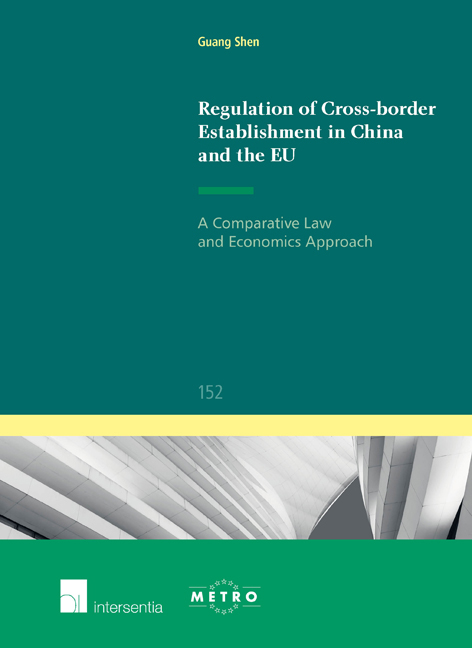Summary
Relevance: What is the social/economic relevance of the research results?
It is generally argued in the literature that protectionist measures are taken by local authorities, which lead to restrictions on the inter-provincial establishment of companies and to market segmentation. In China, local government may take disguised measures to restrict the entry of commodities and enterprises from other places to local areas, thereby abusing their power to grant licenses. As a result, market barriers are created. Existing empirical evidence, as well as my own interviews with stakeholders, confirm that Chinese companies, either foreignfunded or domestic-invested, which want to expand across provincial borders, sometimes encounter barriers to market entry that have been erected by local licensing authorities. In contrast to the creation of entry barriers, as discussed above, there may be destructive competition between provinces to attract investment by non-local businesses.
Based on the above observations, this research examined to what extent regulation of the inter-provincial establishment of companies in China can be considered as serving public interest or private interest goals. Moreover, this thesis studied the extent to which lessons can be learned from economic theory and past EU experience for the regulation of inter-provincial establishment.
Obviously, the research results have social/economic relevance. Firstly, this thesis answered the question whether China can learn something from the EU experience with market integration. Since the expansion of China's internal market is likely to become a more significant ingredient for China's future economic growth, this country would benefit from ensuring easier inter-provincial establishment.
Secondly, this dissertation pointed out that Chinese courts should be granted the power of judicial review to strike down general rules. Because general rules cannot be challenged for their legality in China, the real application of licensing leads to considerable barriers in doing business. Obviously, the establishment of judicial review over general rules can help curb the abuse of business licensing power and remove unnecessary entry barriers. As a result, both Chinese companies and international companies would profit from this suggestion.
Thirdly, this research studied the extent to which lessons can be learned from economic theory for the regulation of inter-provincial establishment. In the process of economic development, local governments in China sometimes create overly restrictive entry barriers to non-local firms, in order to protect local industries.
- Type
- Chapter
- Information
- Regulation of Cross-Border Establishment in China and the EU , pp. 263 - 266Publisher: IntersentiaPrint publication year: 2016



